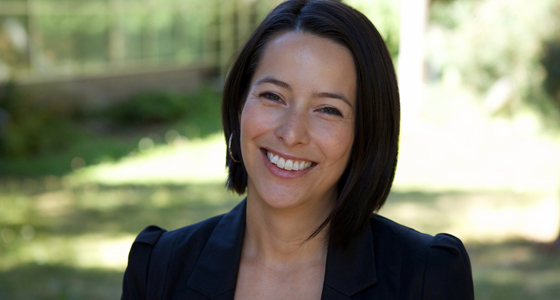 Many students enter their first course with Indigenous content in their third and fourth year of university. Lack of exposure to this material often results in underdeveloped ways of thinking critically about their own identity and the representation of others in their writing. As an instructor how do you assist students writing and researching on Indigenous topics while confronted by these challenges?
Many students enter their first course with Indigenous content in their third and fourth year of university. Lack of exposure to this material often results in underdeveloped ways of thinking critically about their own identity and the representation of others in their writing. As an instructor how do you assist students writing and researching on Indigenous topics while confronted by these challenges?
Dr. Dory Nason (Ph.D. University of California, Berkeley) is Anishinaabe and an enrolled member of the Leech Lake Band of the Minnesota Chippewa Tribe. She currently holds a joint position with the First Nations Studies Program and the Department of English. One of the core courses that she teaches in the First Nations Studies Program, “Writing First Nations,” examines the subject of writing and representation in academia in relation to Indigenous knowledge, peoples and cultures. In this course, her students read about and discuss important topics such as: Representation and the Other; Indigenous critiques of rhetoric and research practices; Indigenous, feminist and cultural studies approaches to writing ethnography, oral history, and related research methods. Dr. Nason approaches this course by inviting students to think critically in ways that have not been presented so far in their university experience around issues of writing in an Indigenous studies discipline.
Dr. Nason also teaches Indigenous Literature at the advanced level in the Department of English which poses other challenges. Dr. Nason recognizes that students enter her literature course with a broad variety of backgrounds, knowledge and expertise. She explains that part of the learning and development for students comes from, “Recognizing that even if you come to this course with a significant background in First Nations history or other courses that you may have taken in Anthropology or even First Nations Studies, you might not be familiar with Native literary criticism.” She explains, “Part of my strategy with this course is to introduce literary criticism into Native studies as a way to bridge the gap and diversity of experience” within the classroom.
Dr. Nason’s expertise and innovative ways of thinking about how students learn and build capacity for critical reflection within their writing have been invaluable contributions in the development of programming for Aboriginal Initiatives at the Centre for Teaching, Learning and Technology (CTLT). As a member of the Faculty Advisory on Aboriginal Classroom Climate Issues at CTLT, Dr. Nason meets with other committee members once a month to identify and discuss key issues in working with Aboriginal focused curriculum, pedagogical approaches to improving classroom climate, and program development in this area.
On January 9th, Dr. Nason will lead a session at CTLT as part of the Classroom Climate Aboriginal Initiatives series titled Critical Thinking and Representation in Student Writing. She will share her approaches to building student capacity through critical feedback, ways of assisting students when they are writing and researching on Indigenous topics and potential strategies on how to give students feedback that is productive.
This session is the 4th in a series of 7 monthly workshops that have been designed to support participants in gaining a clearer understanding of the complexities underlying in their class discussions around Aboriginal and other socially contentious issues.
For more information about Aboriginal Initiatives at CTLT please contact: Amy Perreault, Coordinator of Aboriginal Initiatives, at amy.perreault@ubc.ca.
Comments are closed, but trackbacks and pingbacks are open.